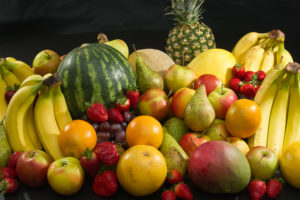 Bleeding gums are usually considered a sign of gingivitis, and the typical advice is to brush and floss more. However, new research suggests that bleeding gums can also be due to low vitamin C levels, and that extra vitamin C in the diet or supplements could help reverse the bleeding in these cases.
Bleeding gums are usually considered a sign of gingivitis, and the typical advice is to brush and floss more. However, new research suggests that bleeding gums can also be due to low vitamin C levels, and that extra vitamin C in the diet or supplements could help reverse the bleeding in these cases.
After reviewing fifteen studies, the authors found that bleeding in the eye (retinal hemorrhaging) and cerebral strokes are associated with an increased tendency for gum (gingival) bleeding, and that vitamin C supplementation (e.g. ascorbic acid) reverses the retinal bleeding associated with low vitamin C levels in the blood.
These bleeding tendencies may reflect trouble in the person's microvascular system (microvascular fragility), which can be reversed with increased vitamin C (ascorbic acid) intake. [microvascular means the tiny vessels (e.g.venules and capillaries) of the circulatory system.] The researchers point out that current recommended vitamin C (ascorbic acid) doses are enough to prevent scurvy, but may be too low to prevent microvascular fragility.
Getting more vitamin C in the diet is easy to do by eating more fruits and vegetables. Especially high levels of vitamin C are in orange juice, oranges, citrus fruits, kiwis, red peppers, broccoli, strawberries, brussels sprouts, and grapefruit.
From Medical Xpress: Bleeding gums may be a sign you need more vitamin C in your diet
Current advice from the America Dental Association tells you that if your gums bleed, make sure you are brushing and flossing twice a day because it could be a sign of gingivitis, an early stage of periodontal disease. And that might be true. So if you are concerned, see your dentist. However, a new University of Washington study suggests you should also check your intake of vitamin C. ...continue reading "Bleeding Gums Can Be Sign Of Low Vitamin C Levels"

 It turns out that scurvy and vitamin C deficiency is still around these days. Scurvy is a disease resulting from a lack of vitamin C. Most animals can synthesize vitamin C, but not humans. We must eat foods containing vitamin C to get the vitamin.
It turns out that scurvy and vitamin C deficiency is still around these days. Scurvy is a disease resulting from a lack of vitamin C. Most animals can synthesize vitamin C, but not humans. We must eat foods containing vitamin C to get the vitamin. A study found that a combination of cranberry supplement (120 mg cranberries, with a minimum proanthocyanidin content of 32mg), the probiotic Lactobacillus rhamnosus, and vitamin C (750 mg) three times a day was enough to prevent the recurrence of urinary tract infections (UTIs) for the majority of women in this small (36 patient) study. At 6 months there was a 61% success rate. No side effects were reported.
A study found that a combination of cranberry supplement (120 mg cranberries, with a minimum proanthocyanidin content of 32mg), the probiotic Lactobacillus rhamnosus, and vitamin C (750 mg) three times a day was enough to prevent the recurrence of urinary tract infections (UTIs) for the majority of women in this small (36 patient) study. At 6 months there was a 61% success rate. No side effects were reported. A cataract is a clouding of the lens in the eye leading to a decrease in vision. It can affect one or both eyes, it is more common with age, and can even lead to blindness. About 20 million people globally are blind due to cataracts. Vitamin supplements have failed to find an effect in numerous studies.
A cataract is a clouding of the lens in the eye leading to a decrease in vision. It can affect one or both eyes, it is more common with age, and can even lead to blindness. About 20 million people globally are blind due to cataracts. Vitamin supplements have failed to find an effect in numerous studies. Once again, research shows that eating lots of fruits and vegetables is beneficial to health - this time because high vitamin C concentrations in the blood is linked to lower risks of developing cardiovascular disease and early death. And it's food that they looked at, not supplements. From Science Daily:
Once again, research shows that eating lots of fruits and vegetables is beneficial to health - this time because high vitamin C concentrations in the blood is linked to lower risks of developing cardiovascular disease and early death. And it's food that they looked at, not supplements. From Science Daily: Another popular view bites the dust.
Another popular view bites the dust.